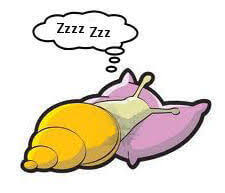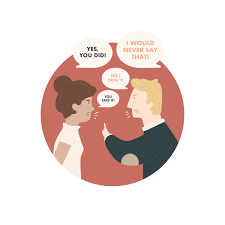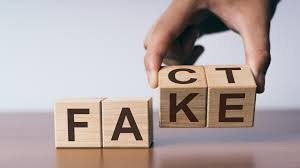It takes a long time to get to the other side of the country.
To be sure, there are adventures to be had, mortal dangers to avoid and many different, friendly and unfriendly people to meet on the way. The variety of the different kinds of food would be a wonderful experience, if you are brave enough to taste them.
Sam woke up one morning with a tingling in his foot. He had been born with only one foot – that was the one that was tingling! He reckoned that the tingling must mean something. Then he had the brainwave! It means I need to travel. Where should I go? Just look North and step forth as they say in the classics!
So that is what he did. He hoisted all his worldly possessions on his back, checked where the sun was to find North and slipped silently on his way. No goodbyes or explanations to any of the others, who still slept – this was his own adventure!
He made good progress, crossing a patch of forest, but it was hot! Sam realised that moving during the day was not as wise as doing it in the cool of night. As he was thinking about perhaps holing up for the rest of the day, he was knocked over by a mighty blow!

Looking up he saw the face of a great furry monster looming over him. He quickly dived into his house and sealed the entrance with his foot. Nothing happened for a moment, although he thought he could hear heavy breathing.
All of a sudden, his foot was tickled and he began to giggle, even though there was something very big and dangerous out there…
The cat pulled a face and said Yuchh! and spat out the taste of the slimy snail foot and stalked away, sure that he would never taste a snail’s foot again.
Phew ! said Sam after a while, that was a lucky escape! He stretched out of his shell, tested the grass with his tongue (it tasted a bit different to the lettuce he was used to) and looked about to see if it was safe to go on. Which it was, so he slipped along for a while, up and down over grass blades, until he got to a flat hard desert like surface.
Far on the other side he could see some green, so he set off. It was very hot and he began to feel sorry that he had left home and his family and friends. There was no one to talk to and… suddenly there was a loud squeewitt!! and a shadow fell over him. It was a Magpie Lark who thought Sam could be lunch; but Sam was fast. He slipped into his shell and gripped the ground tightly with his muscular foot. Tap! tap! peck, peck! on his shell, but it was too hard for the bird, which flew off with a disgusted Sqweewitt!
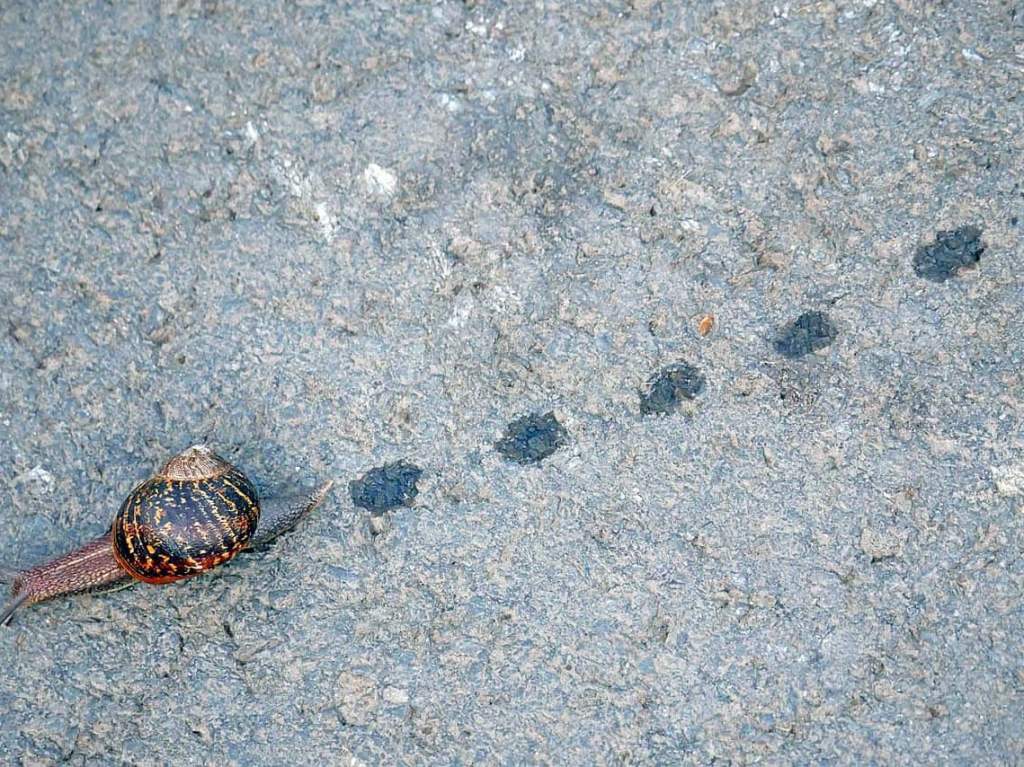
And that was enough adventure for Sam. He turned away and sprint-slipped back the way he came. He got back home as the sun was going down.
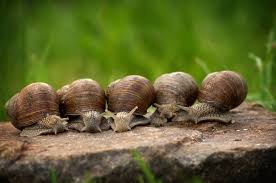
All the other snails who lived under the same pot as he did said Where have you been? You were gone when we woke up and we searched and searched but couldn’t find you…
The other side of the world Sam said, don’t go there and fell asleep.
